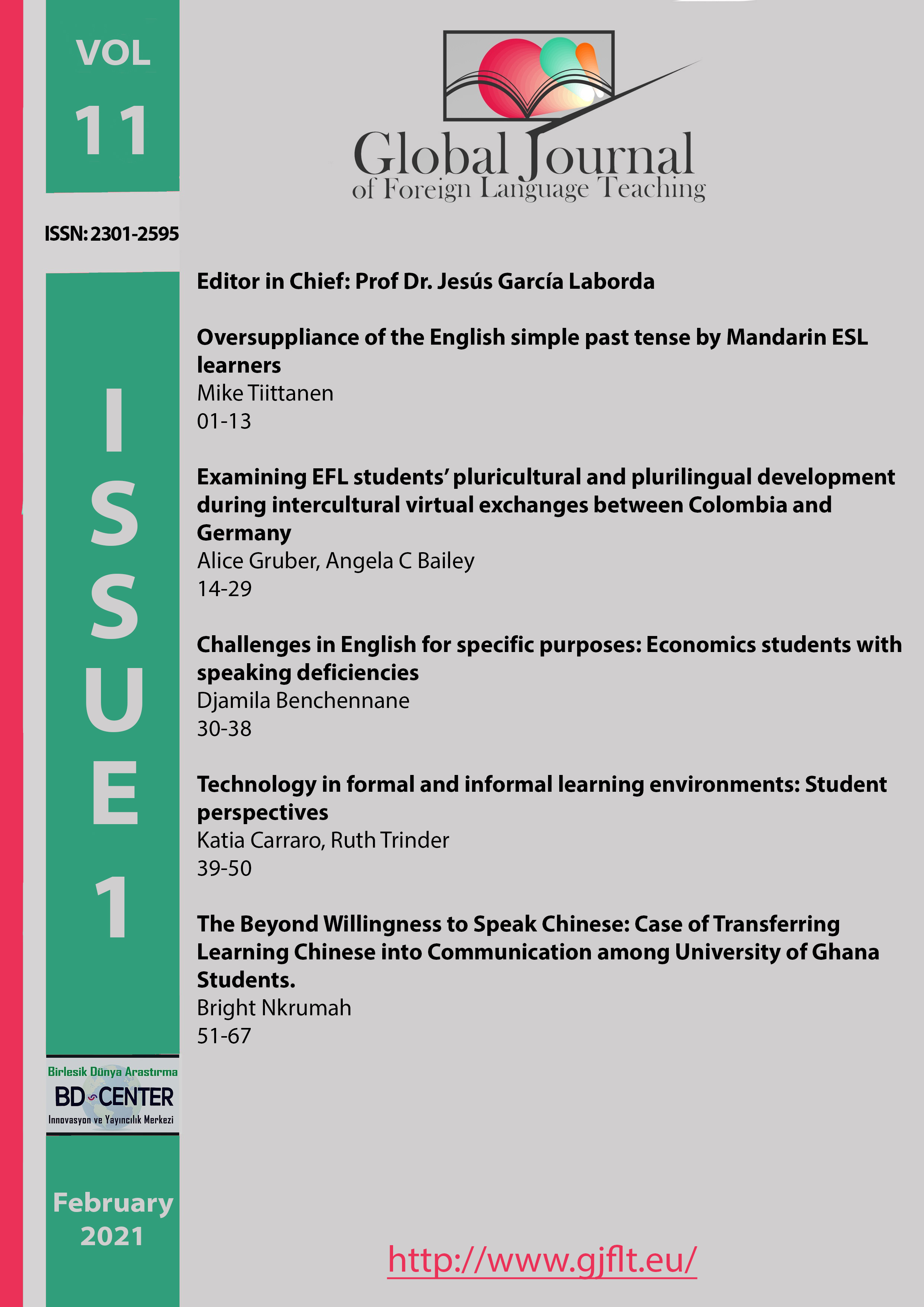Technology in formal and informal learning environments: Student perspectives
Main Article Content
Abstract
The aim of this study is to assess whether the ease with which L2 learners/users can engage with their target languages beyond the classroom influences their perceptions of formal environments. In the last two decades, the rapid development and spread of new technologies has transformed foreign language acquisition, facilitating learning through leisure and informal language contact. At the same time, the new media are altering instructional contexts. Having always played a defining role in self-access centres (SACs), their ubiquity may now threaten this setting’s raison d’être; and while they can certainly add new dimensions to formal teaching, they are not necessarily welcomed by all stakeholders alike. These potential conflicts triggered our interest in researching students’ use of and perspectives on the affordances of technology for language learning in both formal as well as informal environments. Drawing on questionnaires, interviews and the results of the annual SAC monitoring, we will present data from three interlinked settings. Results indicate that despite the abundance of technology-based language learning opportunities, students still believe they benefit profoundly from the expertise and feedback of teachers and SAC advisors. We will conclude by pointing out potential reciprocal influences between the individual settings of a learning environment, and advise how teachers could help students become better-informed consumers of technology-mediated learning opportunities.
Downloads
Article Details

This work is licensed under a Creative Commons Attribution 4.0 International License.
Authors who publish with this journal agree to the following terms:- Authors retain copyright and grant the journal right of first publication with the work simultaneously licensed under a Creative Commons Attribution License that allows others to share the work with an acknowledgement of the work's authorship and initial publication in this journal.
- Authors are able to enter into separate, additional contractual arrangements for the non-exclusive distribution of the journal's published version of the work (e.g., post it to an institutional repository or publish it in a book), with an acknowledgement of its initial publication in this journal.
- Authors are permitted and encouraged to post their work online (e.g., in institutional repositories or on their website) prior to and during the submission process, as it can lead to productive exchanges, as well as earlier and greater citation of published work (SeeThe Effect of Open Access).
